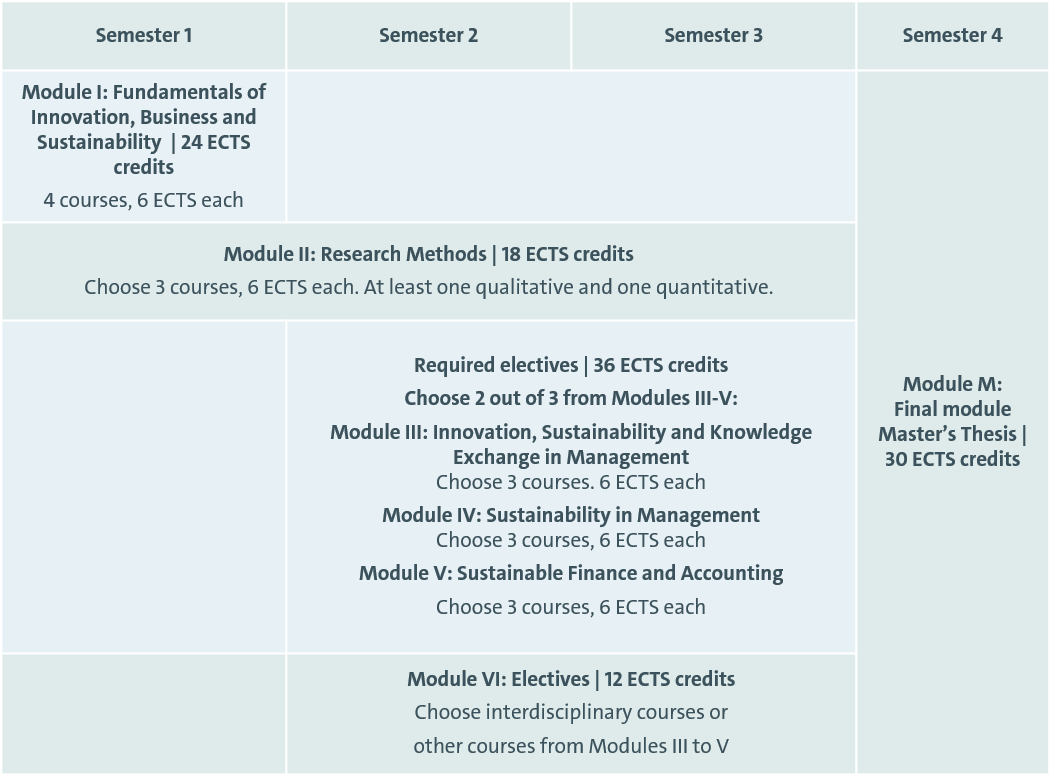Program Outline
MIBAS is divided into four semesters and six modules spanning a broad range of subject areas and 120 ECTS credits.
Courses are designed to provide you with a rigorous foundation in the core areas of the program – business, sustainability, and innovation management – and support you in developing and pursuing specialized knowledge in your areas of interest. After you’ve completed the program, you’ll be equipped to take on a role in international management and navigate the complexity of today’s globalized business landscape.
The program is structured as follows:

Semester 1: Modules I and II provide a foundation in business administration and research methods.
Semester 2-3: Modules III-VI deepen and specialize your knowledge in sustainability and innovation in the context of management, finance and accounting. Room for electives allows you to further individualize your studies.
Semester 4: The last semester is devoted to your master’s thesis, a significant research project allowing you to use the skills and knowledge you’ve developed during the program to explore a research question of your choice.
The program content is outlined in detail in the
- Subject-Specific Provisions (Fachspezifische Bedingungen)
- Examination Regulations (Prüfungsordnung)
- Course catalogue
Please note that the exact course offering varies each semester; all courses listed on this page are subject to change.
